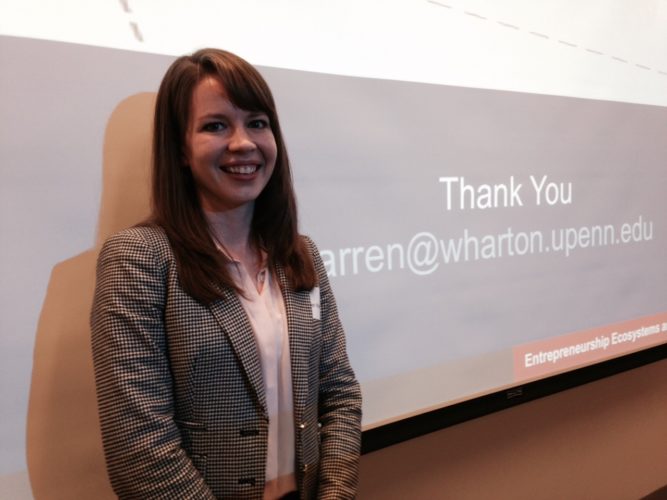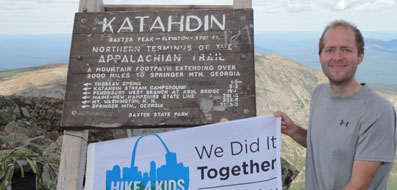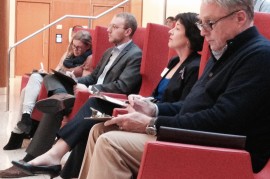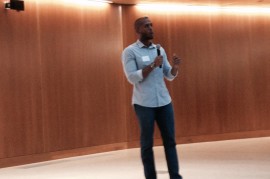How can a community help its aspiring entrepreneurs to turn their dreams into successful businesses? Especially if some of its members come from less-privileged backgrounds with little training in business acumen? Our client, David Stiffler seeks to provide an answer to these questions through his proposed project, Entrepreneurship for All. By devoting a floor in the T-Rex building to an entrepreneurship-mentoring program for the low-income high performance college students, David hopes to extend T-Rex’s excellent entrepreneurship offerings to previously unsupported demographics of the St. Louis Community.
Many cities across the United States are struggling with urban development trends that divide neighborhoods based on their residents’ social-economic status. This is particularly apparent in our city of St. Louis, where city blocks from the same street can differ so drastically that they are unrecognizable from each other. The large gap in economic incomes also partially contributed to the recent demonstrations that have gripped our city and raised serious questions regarding race, social status, and economic equality. Entrepreneurship can be a potential solution for enabling economic development in low-income neighborhoods and reducing the number of under-educated/unemployed youths in the city. By providing students from these areas with the training needed to build their own businesses, the students can then increase economic activity in their neighborhoods and provide employment opportunities. This new focus on entrepreneurship has already been identified as a paradigm shift in cities such as Pittsburgh or Detroit.
The successful business owners of St. Louis have been working hard on improving the city’s entrepreneurship ecosystem through enticing aspiring entrepreneurs from across the country to relocate to St. Louis. This system is gaining momentum through initiatives like Venture Café, Arch Grants, and Coretex… where members are carefully nurtured and are producing better startups every year. Opening up the ecosystem to underprivileged youth can potentially provide the economic force necessary to reinvigorate our city, especially if a program is developed specifically for them at T-Rex, one of the centers of entrepreneurship located in the middle of downtown ST. Louis.
Our client David Stiffler, is the Community Affairs Manager at Equifax. David has identified this need and wishes to bring the program into existence. Our objective is then to conduct a feasibility study on the Entrepreneurship for All project. We need to first identify the physical requirements necessary to launch such a program. We then need to validate the fit and sustainability of moving such a program into the T-Rex space. Finally, we need to identify the demographic segment targeted by this program as well as any potential existing programs that are helping the same demographic.
We will be reaching out and conducting one-on-one interviews with the leadership at T-Rex, Arch Grants, Coretex… to analyze the current entrepreneurship ecosystem. We will also be researching existing programs in other cities and if their success can be adopted for St. Louis. Our results should enable us to better understand the gap that can be filled by the Entrepreneurship for All program and its potential success in helping the community.
This post was written by Finn Liu, MBA ’16, Kenneth Mao, MBA ’16, Colin Stapleton, MBA ‘16, Greg Scharine, PMBA










 Co-sponsored by Olin’s Entrepreneurship & Venture Capital Association and the Skandalaris Center, this Ideabounce will award $500 in cash prizes.
Co-sponsored by Olin’s Entrepreneurship & Venture Capital Association and the Skandalaris Center, this Ideabounce will award $500 in cash prizes.


